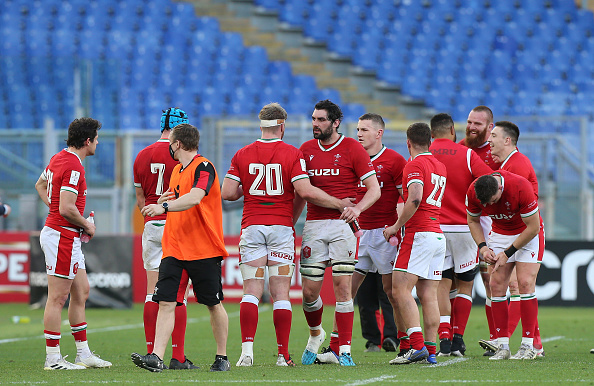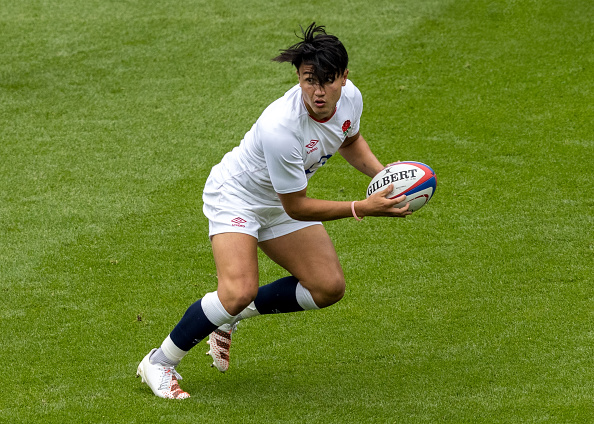Now is probably not the best time for intense introspection after a chastening and bruising defeat to Ireland. Especially for those in and around the close inner circle of players and coaches in Welsh International Rugby. Perhaps best if they keep Kipling’s words in mind, “If you can meet with triumph and disaster, and treat those two impostors just the same.”
There is the not-so-small matter of a home game against Scotland coming up in less than a week. Scotland will be riding relatively high having dispatched England at home in the Calcutta Cup (write-up from Charlie Inglefield via LWOS).
Having warned against navel-gazing, this piece will go on to analyze some of the less tangible aspects of Wales’ game. Therefore, in some measure, contradicts the premise about not dissecting a defeat. It’s called,
“Ideas, Identity and Ideals in Welsh International Rugby.”
𝗙𝗨𝗟𝗟 𝗧𝗜𝗠𝗘 | 𝗦𝗚Ô𝗥 𝗧𝗘𝗥𝗙𝗬𝗡𝗢𝗟
Congratulations @IrishRugby. #IREvWAL pic.twitter.com/TjBJyNIR59
— Welsh Rugby Union 🏉 (@WelshRugbyUnion) February 5, 2022
In international rugby, it appears that a rounded approach makes the most sense, and seems to get the best results. The approach goes something like this, forgive me for any omissions: strength and conditioning (also to include rehabilitation from injury), rugby skills (set-moves and attacking structure, drills, set-piece preparation and so on), game-management and tactics, sports-psychology, team-building, handling the press, administration and team-management (scheduling/travel-planning/kit and so on).
“Ideas, Identity and Ideals” falls mostly within the remit of sports psychology, but there is some crossover into the other areas.
Three-point framework to ensure Welsh rugby remains robust
- Get domestic rugby and the Welsh regions close to, at the same level, or to exceed its neighbours: England, Wales, Scotland and Ireland. This involves not turning back the clock and reverting to the previous club structure. What it does involve though, is financial backing from the WRU and an increase in match-day attendance. We hear all the time about how great the Gallagher English Premiership is, and it is great. Instead, can we fully get behind the URC and the Welsh regions within it? What effect is extolling the virtues of the Premiership, whilst disparaging the regions having on those within the Welsh game? The WRU must take a leaf out of the unions of Ireland and Scotland for example in terms of funding. This is not to say that other parts of the rugby picture in Wales don’t need help. It just means the regions need to compete and stay with the leading teams in Europe and they need the WRU’s help. For an in-depth look at the state of Welsh regional rugby click here (courtesy of @Iestyn_thomas21 & LWOS)
- Clarify and refine the player pathway. Strengthen the school’s game as @Rreesrugby, Senior Editor at LWOS tweeted about recently (see below). If I were to add my own two-pennies worth, it would be to make sure that skilled and imaginative young players don’t slip through the net. Even if they fall out of love with the game or have disciplinary problems. Let’s not rule out those out-of-the-box thinkers who are capable of playing exciting rugby. Athleticism, build and strength are vital. However, some of those components can be worked on when callow teenagers have fully developed physically.
- The WRU needs to be transparent, accountable and equitable. There needs to be a removal of whatever remaining cloak of secrecy there is around decision-making and finances. Is there space for fresh new faces with up-to-date ideas at the top table of Welsh rugby?
Schools rugby and colleges rugby in Wales needs a serious look at.
Create a pathway, trust it to work and integrate it with the academies and clubs we already have.
It's non-existent and has to be to develop players earlier.
— Robert Rees (@Rreesrugby) February 5, 2022
Ideas, Identity and Ideals in Welsh International Rugby
On to Ideas, Identity, and Ideals in Welsh International Rugby. Firstly – Is there currently an issue around effective communication in the Welsh camp? It’s speculation on this writer’s part, but legendary players Stephen Jones and Gareth Jenkins strike me as being relatively diplomatic. Not necessarily the first people to put their hand up to speak in a meeting.
No doubt that on the rugby front they have plenty to offer, but do they need assistance? Wayne Pivac (Wales head coach pictured above) also seems to be a relaxed and affable character. Do Wales need someone in their coaching set-up that is not not shy in coming forward? Is there a coach out there that is willing to take on the press and ruffle a few feathers? As ex-players go, might Adam Jones (another who is not the biggest talker but who was, and still is, a huge character) be a good fit? What about an opinionated and confident Mike Phillips?
During his time, Warren Gatland wasn’t necessarily the loudest, but he knew how to say something incisive and effective at the right time; nine times out of ten. He also had Shaun Edwards at his side. The defensive coach would probably be willing to tear a strip off someone should it be required. There’s definitely a place for arms around the shoulder stuff as long as it is balanced out with being able to challenge behaviour and attitudes within the camp.
Cycles and Development in 2022
Secondly, there is the topic of cycles and development. There is an argument that says that the time to re-evaluate and reset in sport is when you are close to, or at your peak. Not after it. This is because top teams can’t stay at the pinnacle forever. You become a target for the up and comers. Wales golden-era has for the moment passed.
How Wales play is dependent on prevailing trends, the composition of their squad, the opposition faced and conditions. There’s something to be said for the bold, romantic style of the seventies and of the 2005 Grand Slam Team. As there is of the historically recent ‘Warrenball’. A term that has been used to undervalue Warren Gatland’s highly effective method of getting Wales to play for a decade and more.
If the player-pathway and regional rugby sees improvement then how Wales plays should take care of itself. Wales can then model, or at the very least take some of the form of a successful regional side into its games (or even an amalgamation of the approach of several winning regional sides). Potential internationals will still have to be tracked down based on height, build and speed. However team-ethic, attitude and rugby skill-set are equally as important.
Anthem, patriotic song celebrating language
Other issues to consider fall under identity and ideals. Who are Wales? When considering this, it was interesting to see what is happening in Welsh football. At the last Welsh international the football fans absolutely belted out the anthem pre-match. Some rugby fans online were even suggesting that they outshone the voices in the usually deafening Principality Stadium when there is a rugby international.
Also, it was intriguing to hear of a member of the Welsh national side playing Dafydd Iwan’s, ‘Yma o Hyd’ prior to games. This is a patriotic song celebrating the Welsh language and the survival of its people. This is sung among some fans in rugby circles. However, has Welsh football stolen some of the momentum from rugby in terms of Welsh identity going forward?
There’s also the well-discussed topic around drinking at the Principality Stadium during international matches involving Wales. Are the powers that be right to make attempts to curb it? Perhaps Welsh rugby supporters and the WRU for that matter have grown too used to the good times. Have they been dining and drinking out on the successes for too long?
Conclusion; Welsh International Rugby
"I thought after the last World Cup there was going to be a changing of the guard but there wasn't."🏉
Sam Warburton's concern for Wales is one of five talking points from the opening round of the Six Nations ⤵
— BBC Sport Wales (@BBCSportWales) February 7, 2022
Even with Wales’ long injury list, the Welsh International Rugby players that are available for selection need to get back to what they do best, which is playing rugby. So what if they are not quite drinking at the top-table of international European rugby at the present time.
Wales fans want to see some fluent attacking bolstered by a decent set-piece platform. Both were missing last Saturday, albeit under pressure from an in-form Ireland team. Could it be a classic Wales versus Scotland match on February 12?
Main Picture Credit:
Embed from Getty Images



